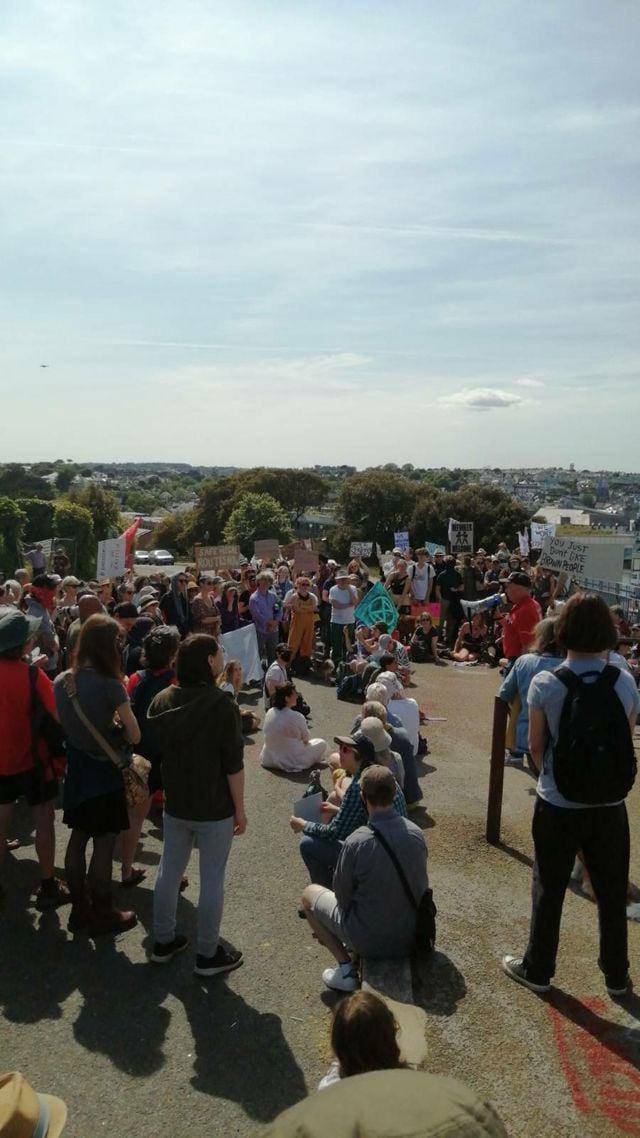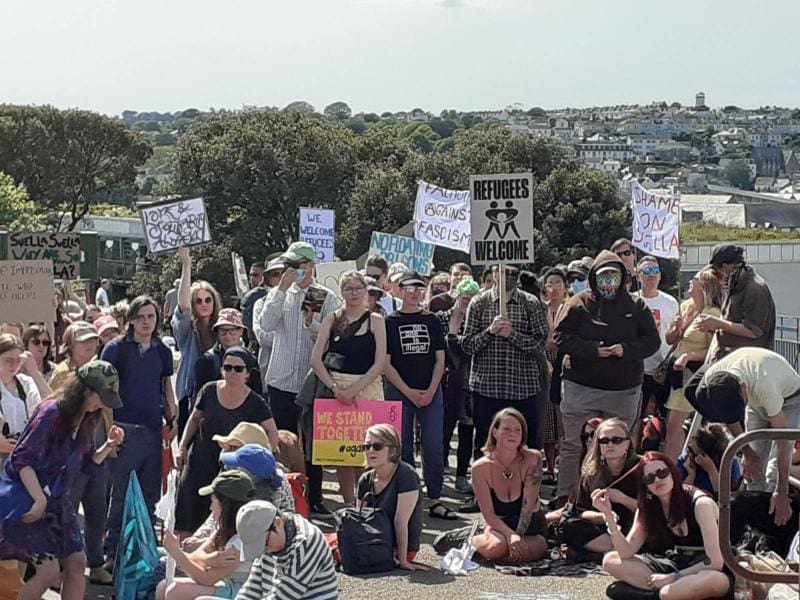By Cambridgeshire County Council’s (CCC) own admission, Coton Orchard – a 100-year-old fruit tree, meadow, and hedgerow-filled ecosystem – is a buzzing community hub. Badgers, bats and other mammals, dozens of species of birds, along with with hundreds of invertebrate species, are all part of the orchard’s wider community.
But despite this, the council plans to create a busway route right through Coton Orchard. The plan has attracted criticism and opposition, with the Woodland Trust becoming the latest to join the fray.
Council needs to rethink Coton Orchard plan
Cambridgeshire holds the unenviable position of being one of the most nature-impoverished counties in one of most nature-depleted countries on Earth.
Unsurprisingly, then, the plan by the Greater Cambridgeshire Partnership (GCP) and CCC to build a road through Coton Orchard and surrounding areas has caused a stir. Thousands of concerned people have signed a petition against the plan for the Camborne to Cambridge (C2C) road.
Meanwhile, the Coton Busway Action Group is furiously campaigning for the council to scrap the plan and opt for a less destructive – and existing – alternative. The Woodland Trust is also calling on the involved parties to rethink the route. Lead campaigner for the organisation Jack Taylor said:
We are calling on GCP and CCC to rethink their plans for the busway which would have grave consequences for a number of veteran trees.
These trees are particularly valuable for local wildlife populations, such as saproxylic (deadwood-dependent) invertebrates, as well as many important bird, mammal and fungi species.
Threat to Coton Orchard invertebrates
Like the Woodland Trust, the council’s own environmental assessment for the plan pointed to the importance of Coton Orchard for invertebrates, along with countless other animals. The assessment highlighted that the orchard supports:
a diverse range of invertebrates, including 14 species currently regarded as nationally scarce, though with certain areas supporting more rarities than others.
The assessment identified 239 species in Coton Orchard – including butterflies, moths, bees, beetles, and more.
Protection of invertebrates, meaning the myriad of small animals without a backbone, is critical in tackling the extinction crisis. They are essential to healthy ecosystems, not least because they are a food source for other species.
For instance, a recent study found that the dramatic decline in the abundance of birds in Europe over recent decades is due to intensive agriculture. In particular, it pinpointed the intensive use of chemicals, namely pesticides and fertilisers, as the main culprit in birds’ demise. This is in large part because many of the chemicals deliberately kill the invertebrates that birds depend on for survival.
An ‘utterly destructive proposal’
Responding to the Woodland Trust’s intervention, a GCP spokesperson said the project will cut congestion and air pollution and will enable people to travel “quickly, reliably and more sustainably”. In relation to the impact on biodiversity, they said:
We are developing mitigation proposals to preserve views, screen infrastructure and limit the impact on the landscape. We are committed to planting 1,500 new trees along the route – significantly more than we will remove. Hedgerows will also largely be maintained as part of our commitment to deliver a minimum 10 per cent biodiversity net gain for the scheme overall, with the ambition of achieving 20 per cent.
However, the environmental assessment said that 1.3km of existing hedgerow around Coton Orchard “will be lost”. Moreover, the People’s Trust for Endangered Species has challenged biodiversity net gain claims from the project’s proponents, arguing that:
This utterly destructive proposal can never achieve biodiversity net gain due to the vast amounts of damage that it will do to an ancient orchard full of veteran trees, and the enormous impact of a road going through so much previously undamaged and unfragmented countryside.
Biodiversity net gain (BNG) is the government’s controversial metric to facilitate continued development in nature-rich areas during the extinction crisis. It enables developers to secure a green light to destroy existing wildlife habitat. They can do so as long as their plans include promises to replace that biodiversity elsewhere and, in many cases, increase it overall.
There is an alternative
According to the Coton Busway Action Group, a much less destructive on-road alternative to the plan exists. Some proponents have warned that the alternative would threaten other biodiverse areas. However, the campaign group effectively characterises this as nonsense because it utilises existing roads:
The @GreaterCambs & @CambsCC have said the proposed route will “avoid the SSSI-designated ancient woodland, Madingley Wood”. However, the Trust has said “avoidance of one irreplaceable habitat should not come at the cost of another.” More importantly, the Woods aren’t under… pic.twitter.com/u59KD1mgN6
— Bonkers Busway Cambs
(@BonkersBusway) May 29, 2023
The campaign group says that:
We are wholly in favour of public transport solutions and a better C2C bus service. But the GCP’s off-road scheme will not provide a solution or a good service.
The on-road alternative, it argues, would be more economical, provide a good service and, critically, be less environmentally damaging. It insists that “we cannot afford this loss of habitat”.
The diverse community of wild beings that call Coton Orchard home would undoubtedly and wholeheartedly agree with that conclusion.
Featured image via Coton Busway Action Group
This post was originally published on Canary.

 NOT MY BILL
NOT MY BILL On Saturday, we joined
On Saturday, we joined 





 (@DawnButlerBrent)
(@DawnButlerBrent)  Suella Braverman's Survival Shows Sunak’s ‘Core Value’ is Self-Interest
Suella Braverman's Survival Shows Sunak’s ‘Core Value’ is Self-Interest #AintAsking (@TheDryhtscipe)
#AintAsking (@TheDryhtscipe)  Federation
Federation 
 (@AnarchistFed)
(@AnarchistFed) 





 #StopTheWar (@DickMackintosh)
#StopTheWar (@DickMackintosh) 
 Sky 501 / YouTube
Sky 501 / YouTube